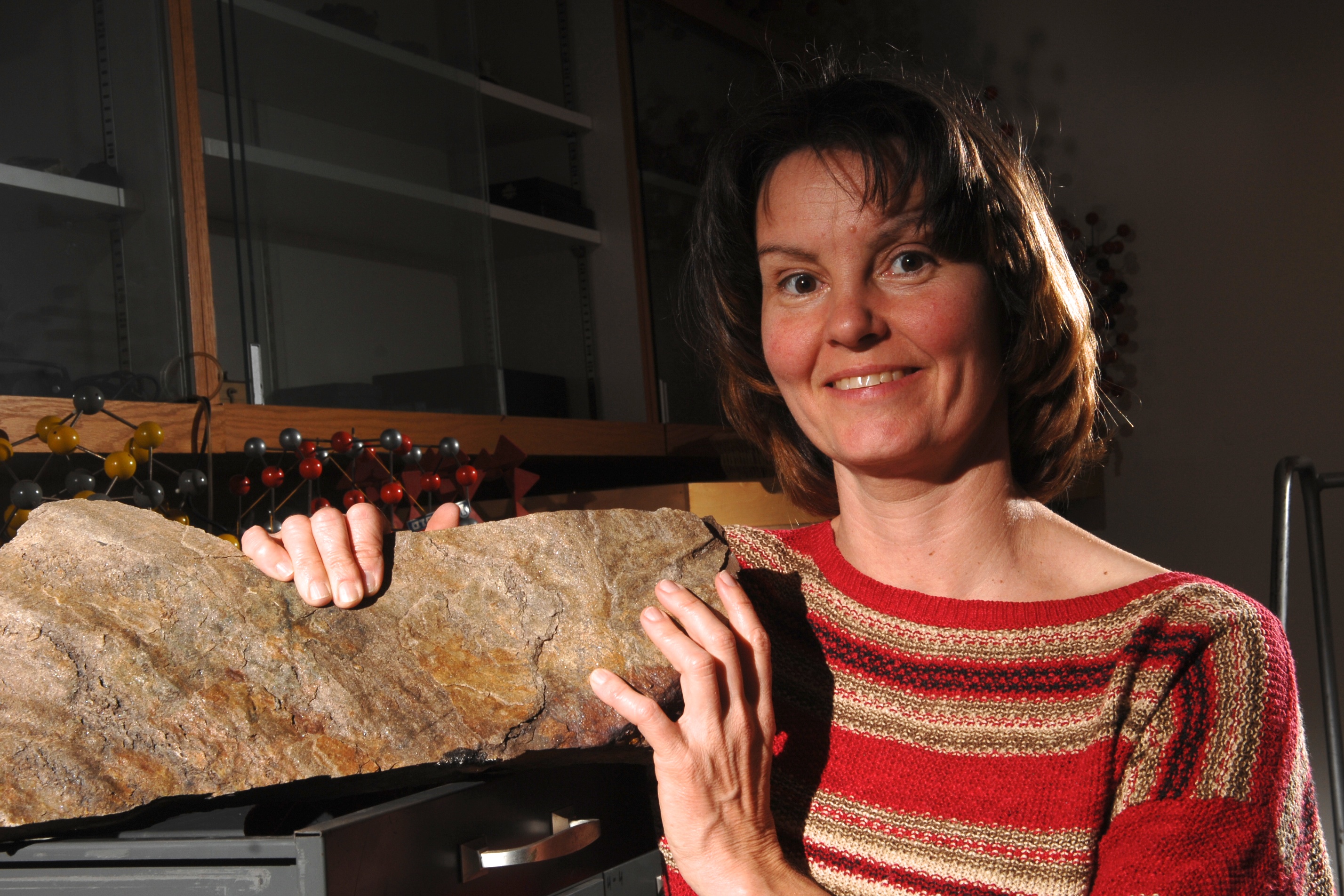ODU Rearcher to Lead International Scientific Group Studying Earth's Most Ancient Period
September 28, 2017
 Nora Noffke
Nora Noffke
By Jon Cawley
Old Dominion University researcher Nora Noffke was recently tapped to lead an international group of scientists studying the origin of Earth.
The International Commission on Stratigraphy (ICS) appointed Noffke chair of the subcommission on Precambrian stratigraphy.
The ICS, which is made up of geoscientists worldwide who devote their research to the reconnaissance of rock layers that document the great global changes of the Earth, is responsible for the "International Geologic Time Scale." This chart sets the global standard scale for expressing the history of the Earth.
Noffke is an associate professor of Ocean, Earth and Atmospheric Sciences. She has won international recognition for research establishing microbially induced sedimentary structures (MISS) as evidence of earliest life on Earth. In 2013, she was the lead author of a paper in the journal Astrobiology that documented the discovery of 3.48-billion-year-old MISS, the oldest ever reported.
According to the ICS, the subcommission on Precambrian stratigraphy's objective is to "redefine the Precambrian time scale in terms of the extant rock record and first-order events in Earth history" to develop a "comprehensive and natural time scale" that is pragmatic, allows for easy and stable communication between scientists from different disciplines and honors many of the "first-order events and transitions in the history of our planet."
Noffke said the older portion of Earth's history, the Precambrian, ranges from about 4.6 billion to 550 million years ago, and represents three-quarters of the planet's past.
"However, rocks of this high age are sparse, and ancient life is only known from fossils of tiny single-celled organisms such as bacteria or plankton," she said. "Only the rise of new technology has made it possible to study such old rocks and the small remnants of life therein. With new results in hand, the ICS will tackle the difficult task of organizing the Precambrian time scale. The reconstruction of a time span of 4 billion years, from rocks that are notoriously poorly preserved, poses a challenge. Nonetheless, geoscientists with patience and devotion are able to put the small pieces of the puzzle together to gain an overview of our planets most ancient worlds."
Noffke's assignment by the ICS is an acknowledgement of her research on ancient life. Her approach to studying microbial structures in sand deposits instead of limestone or glass-like cherts opened a new field. Noffke's research has been awarded several international awards including the SEPM Wilson Medal for Marine Geology and the GSA Award for Outstanding Contribution in the Geobiosciences. Noffke is AAAS Fellow, as well as fellow of GSA.

